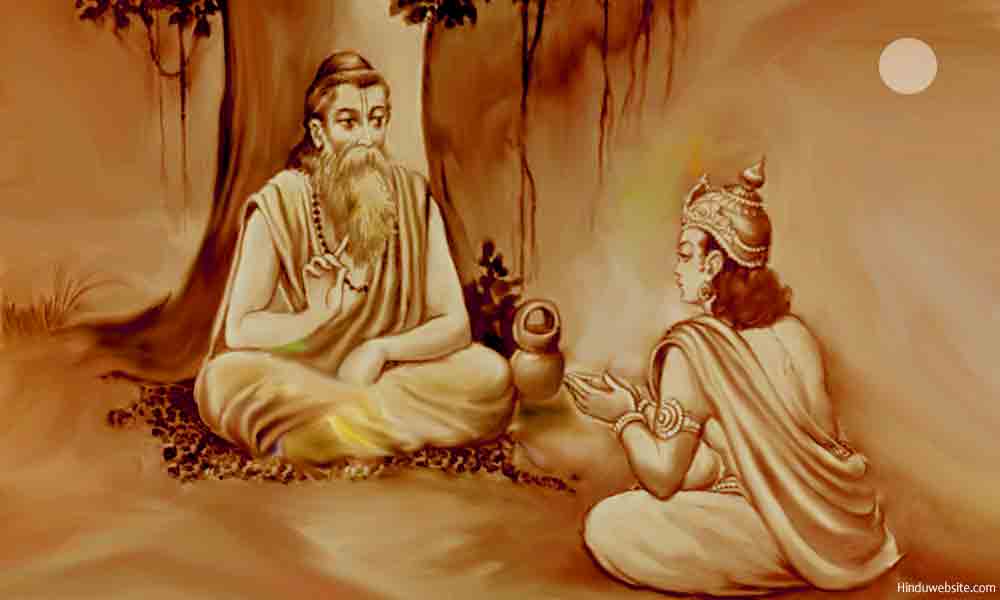
Ashtavakra Samhita, Chapter 1, Nature of Witness Self

The First Chapter contains 20 verses and deals with Sakshi, the Witness Self. Ashtavakra explains how the Self is different from the mind and body and how one should become established in it through renunciation and contemplation. In this chapter you are also introduced to some important concepts of Advaita, the school of nonduality.
Verse 1: Janaka said, how people acquire knowledge, how liberation happens, how renunciation is attained, please explain to me O great lord! Commentary
Verse 2: Ashtavakra said, "O child, if liberation is what you intend, give up the sense objects as if they are poison and take recourse to forgiveness, straightforwardness, kindness, contentment and truth as if they are nectar." Commentary
Verse 3: He who values freedom, will indeed become free. He who values bondage will remain bound only. In this world this saying is true, "As one thinks so is one's fate." Commentary
Verse 4 : If you separate yourself from your body and rest in your consciousness, quickly there will be happiness, peace, and freedom from bondage. Commentary
Verse 5 : You are not of Brahmana or any other caste, nor of any ashrama, nor you are visible to the eyes. Unattached, without form, and as the universal witness, you are blissful. Commentary
Verse 6: Dharma, adharma pleasure and pain belong to the mind not to you, oh lord. You are neither the doer nor the enjoyer but one who is forever free. Commentary
Verse 7: You are the one seer among all and you truly are always free. Seeing the seer as another this alone is your bondage Commentary
Verse 8: You who is bitten by the great black serpent of egoism think, "I am the doer." Drink the nectar of faith that "I am not the doer," and be happy. Commentary
Verse 9: Burn down the forest of ignorance with the fire of this conviction, "I am one pure intelligence." Become free from sorrow and be happy. Commentary
Verse 10: This universe is an illusion like a rope that appears as a snake. When you realize that you are blissful supreme intelligence, you will live happily. Commentary
Verse 11: He who values freedom, will indeed become free. He who values bondage will remain bound only. In this world this saying is true, "As one thinks so is one's fate." Commentary
Verse 12: The Self is the witness, all pervading, complete, one, free, consciousness, inactive, unattached, without desires, peaceful, even when it revolves or wanders in the cycle of births and deaths. Commentary
Verse 13: Meditate upon the immutable, non-dual, intelligent Self, having become free from the non-shining ego, delusion, feeling, and the distinction of external and internal. Commentary
Verse 14: You have been caught for long in the bonds of body love, son. Knowing the Self by cutting that (the attachment) with the sword of knowledge, you will be happy. Commentary
Verse 15: You are unattached, inactive, self-luminous, and without blemish. This only is your bondage that (to know your Self) you have to become established in Samadhi (self-absorption). Commentary
Verse 16: By you this whole universe is pervaded. By you it is sewn and bound as it is. You are pure intelligence by nature. Do not cultivate an impure and narrow mind. Commentary
Verse 17: Without expectation (or dependence), without form, without weight or measure, a reservoir of coolness, unfathomable intelligence, undisturbed is the dweller of the subtle space. Commentary
Verse 18 : Know that the form is unreal, but the formless is permanently stable. By the instruction of this fact, rebirth becomes impossible. Commentary
Verse 19 : Just as the image that appears in a mirror seems to take hold of it, so does the supreme Lord appears in this body as if he has taken hold of it. Commentary
Verse 20: Just as the space inside and outside a jar is the same everywhere so does the eternal, continuous Brahman exist in all beings. Commentary
Suggestions for Further Reading
- Om, Aum, Pranava or Nada in Mantra and Yoga Traditions
- Brahmacharya or Celibacy in Hinduism
- Atheism and Materialism in Ancient India
- Solving the Hindu Caste System
- How To Choose Your Spiritual Guru?
- Creation in Hinduism As a Transformative Evolutionary Process
- Wealth and Duty in Hinduism
- Do You Have Any Plans For Your Rebirth or Reincarnation?
- Understanding Death and Impermanence
- Lessons from the Dance of Kali, the Mother Nature
- Letting your God live in You - The True Essence of the Hindu Way of Life
- prajnanam brahma - Brahman is Intelligence
- Maslow's Hierarchy Of Needs From The Perspective Of Hinduism
- The Definition and Concept of Maya in Hinduism
- The Meaning of Nirvana
- Self-knowledge, Difficulties in Knowing Yourself
- Hinduism - Sex and Gurus
- The Construction of Hinduism
- The Meaning and Significance of Heart in Hinduism
- The Origin and Significance of the Epic Mahabharata
- The True Meaning of Prakriti in Hinduism
- Three Myths about Hinduism
- What is Your Notion of God?
- Why Hinduism is a Preferred Choice for Educated Hindus
- Essays On Dharma
- Esoteric Mystic Hinduism
- Introduction to Hinduism
- Hindu Way of Life
- Essays On Karma
- Hindu Rites and Rituals
- The Origin of The Sanskrit Language
- Symbolism in Hinduism
- Essays on The Upanishads
- Concepts of Hinduism
- Essays on Atman
- Hindu Festivals
- Spiritual Practice
- Right Living
- Yoga of Sorrow
- Happiness
- Mental Health
- Concepts of Buddhism
- General Essays